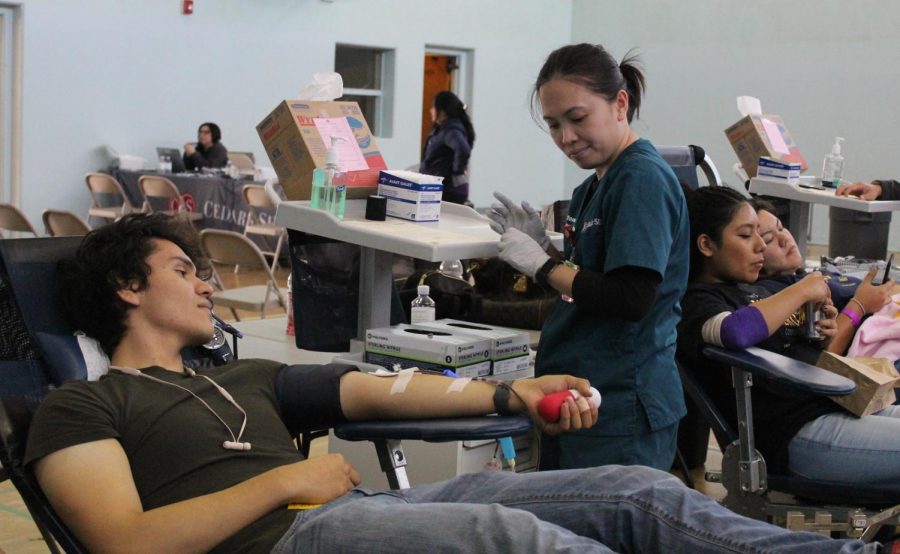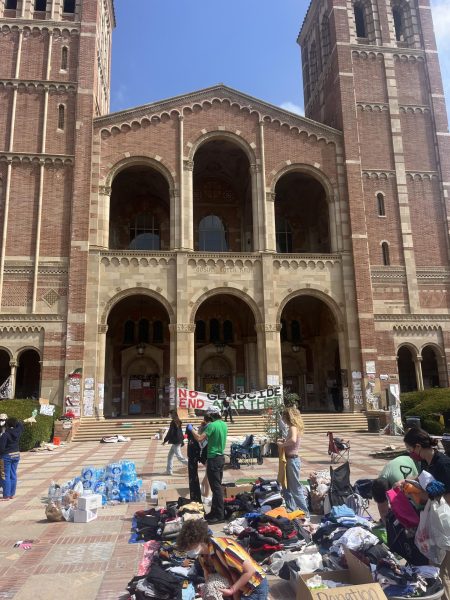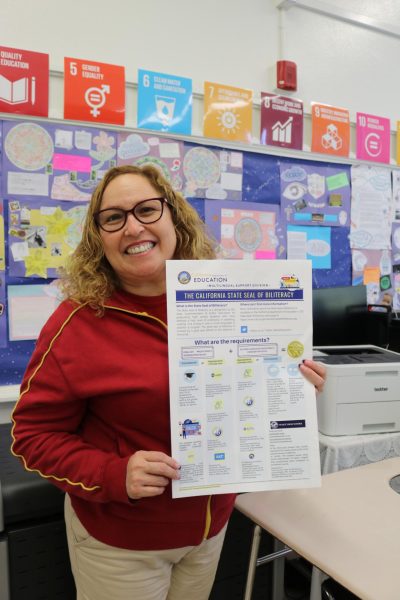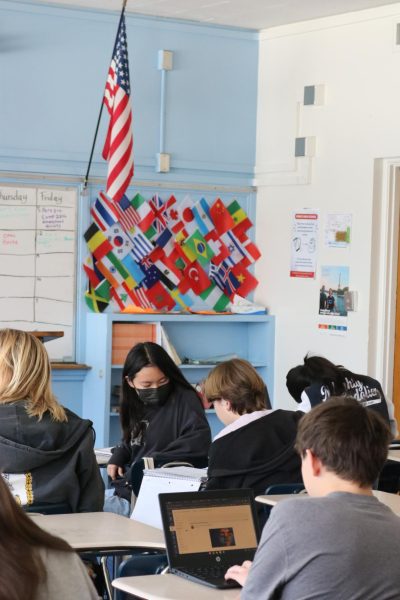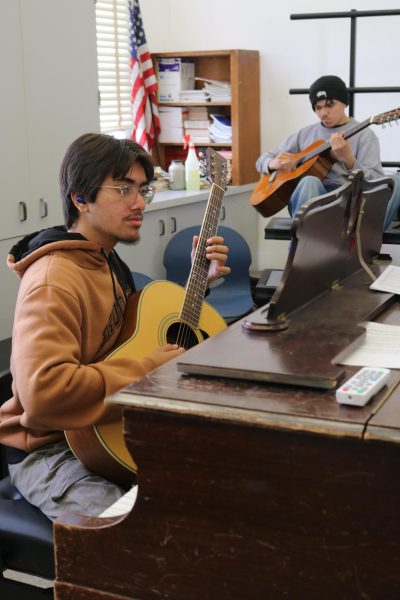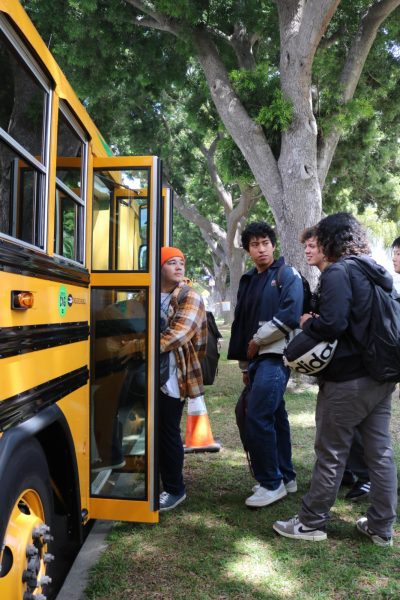Venice Gives Blood
A student donating blood.
November 28, 2017
Venice High School conducted its semi-annual blood drive this past Nov. 13. The Associated Student Body Leadership had partnered with Cedars-Sinai Medical Center to provide the opportunity for students to donate a pint of blood for those in need.
A total of 139 Venice students participated in the drive, altogether donating approximately 13.6 gallons of blood.
“It’s important to donate blood because you are helping another person,” explained one of the phlebotomists working at the event. “And it’s also good for you because it generates your new healthy red blood cells.”
Phlebotomy is the medical practice of drawing blood, typically via a needle from a person’s vein in a process known as venipuncture.
The donation process involved filling out some paperwork including a brief health-survey, undergoing a mini-physical assessment, the venipuncture itself, and finally a mandatory 15-minute resting period. Free snacks and a t-shirt were provided to students who donated.
“[The Cedars-Sinai staff were] super nice and comforting,” recalls junior Ty Chavez. “I was very nervous but everybody calmed my nerves. There were a lot of people around me who were feeling the same, so we were all in it together. [The venipuncture] is rough while it’s happening but afterwards you get this overwhelming good feeling. I’ve never donated before so it was a new experience for me.”
“If you guys didn’t donate this year, make sure you come next semester,” said ASB member Almond McKinley, who was volunteering at the drive.
Donating blood for transfusions helps save lives during emergencies and sustain those with certain blood conditions and disorders. Around 5 million people need blood transfusions in the United States annually, according to the website of the National Heart, Lung, and Blood Institute.
“There is a constant need for regular blood supply because blood can be stored for only a limited time before use,” according to the World Health Organization. “Regular blood donations by a sufficient number of healthy people are needed to ensure that safe blood will be available whenever and wherever it is needed.”
Requirements to donate include being at least 16 years old, meeting weight criteria, and being in good health. The next blood drive will take place next semester.

